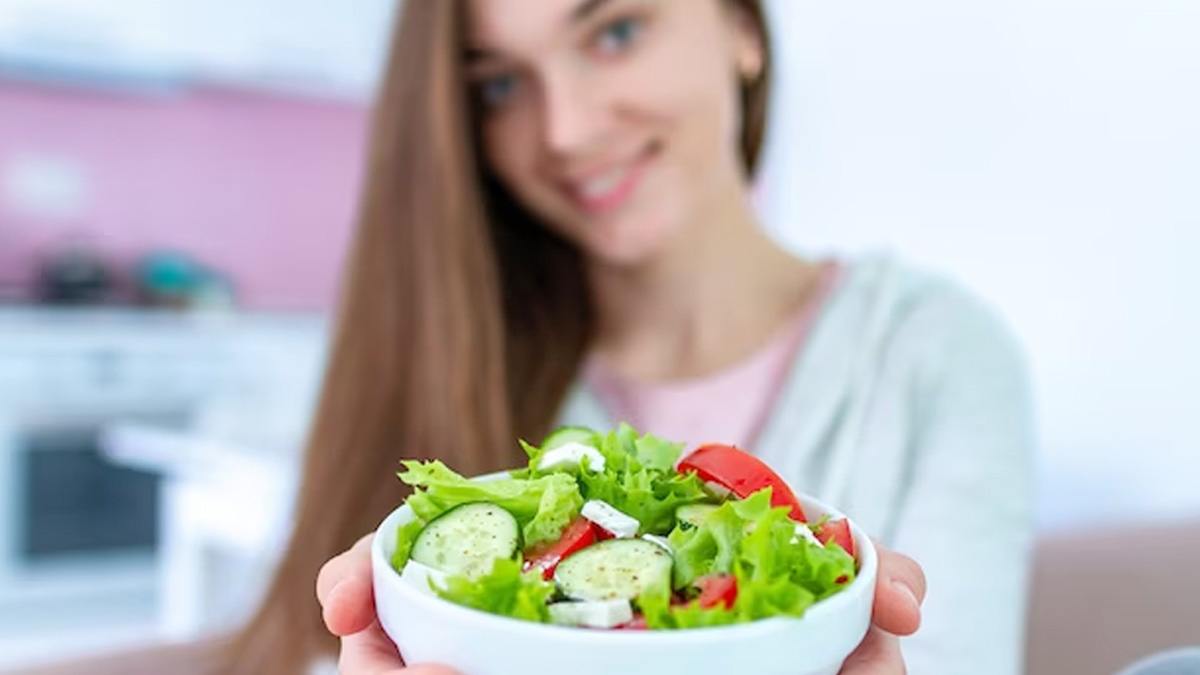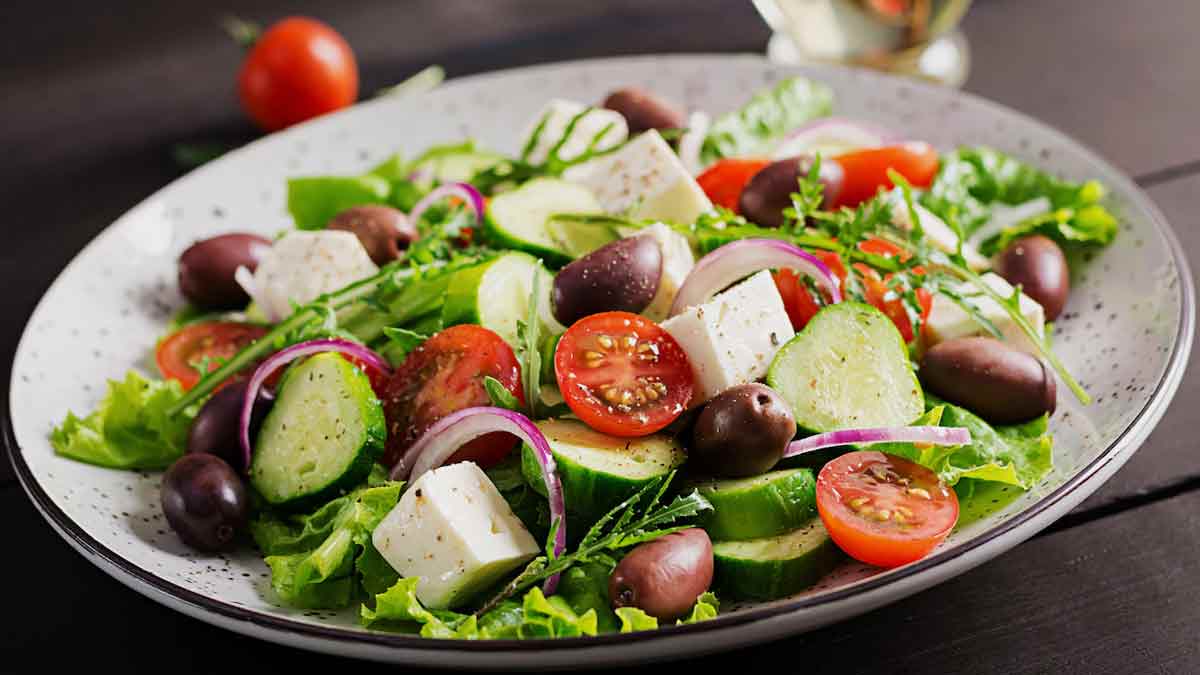
Raw salads are often touted as a healthy choice, packed with nutrients and fibre. However, some individuals experience discomfort such as bloating after consuming them. While salads are generally beneficial for health, understanding the reasons behind post-salad bloating can help manage and alleviate this issue.
Table of Content:-
Causes of Bloating After Eating Raw Salads
1. High Fibre Content
Raw salads are typically rich in fibre, which is essential for digestive health. Fibre adds bulk to stool and promotes regular bowel movements. However, for some people, sudden increases in fibre intake can cause bloating and gas. This occurs because the bacteria in the gut ferment fibre, producing gas as a byproduct. Gradually increasing fibre intake and staying hydrated can help reduce bloating associated with high-fibre salads.
2. Complex Carbohydrates
Salads often contain complex carbohydrates from vegetables like broccoli, cauliflower, and Brussels sprouts. These vegetables contain raffinose, a type of sugar that humans cannot digest on their own. When raffinose reaches the large intestine, gut bacteria ferment it, leading to gas production and bloating. Cooking these vegetables can break down some of the complex carbohydrates, making them easier to digest and reducing the likelihood of bloating.

3. Presence of FODMAPs
FODMAPs (Fermentable Oligosaccharides, Disaccharides, Monosaccharides, and Polyols) are a group of short-chain carbohydrates that some people find difficult to digest. Many vegetables commonly found in salads, such as onions, garlic, and certain cruciferous vegetables, are high in FODMAPs. For individuals sensitive to these compounds, consuming raw salads can trigger bloating, abdominal pain, and other digestive symptoms. Opting for low-FODMAP vegetables or cooking high-FODMAP ingredients can help mitigate discomfort.
Also Read: Expert Shares 9 Signs & Symptoms Of Protein Deficiency
4. Insufficient Chewing
Proper chewing is crucial for effective digestion. When you eat raw salads quickly or without thorough chewing, larger food particles enter the digestive tract, requiring more effort to break down. This can lead to fermentation by gut bacteria, causing bloating and gas. Taking the time to chew salads thoroughly can aid digestion and reduce bloating.
5. Salad Dressings and Toppings
While salads themselves are generally low in calories, dressings and toppings can add significant calories and fat. Creamy dressings, cheese, croutons, and nuts are common additions that can contribute to bloating, especially if consumed in large quantities. Additionally, some dressings contain artificial sweeteners or high-fructose corn syrup, which may cause digestive discomfort in sensitive individuals. Opting for lighter dressings or making homemade versions using healthier ingredients can help minimise bloating.

6. Food Sensitivities or Allergies
Individuals with food sensitivities or allergies may experience bloating and other digestive symptoms after consuming certain salad ingredients. Common allergens found in salads include nuts, dairy products, gluten-containing grains, and certain fruits and vegetables. Keeping a food diary and eliminating potential trigger foods can help identify and manage food sensitivities, reducing bloating and other discomforts.
Also Read: Oestrogen Detoxification: Expert Shares A Comprehensive Guide to Hormone Balance and Wellness
7. Large Meal Portions
Overeating, regardless of the food consumed, can lead to bloating and discomfort. Raw salads, while healthy, can be quite filling due to their high fibre content. Eating excessively large portions of salads can overwhelm the digestive system, leading to bloating and gas. Paying attention to portion sizes and eating until comfortably full rather than overly stuffed can prevent post-salad bloating.
Bottomline
While raw salads are a nutritious addition to any diet, some individuals may experience bloating after consuming them due to various factors such as high fibre content, complex carbohydrates, FODMAPs, inadequate chewing, salad dressings, food sensitivities, and portion sizes. Understanding these reasons can help individuals make adjustments to their salad choices and eating habits to minimise bloating and promote better digestion. Experimenting with different salad ingredients, cooking methods, and portion sizes can help find what works best for individual digestive health. Additionally, consulting with a healthcare provider or registered dietitian can provide personalised guidance and support for managing digestive issues related to salad consumption.
Also watch this video
How we keep this article up to date:
We work with experts and keep a close eye on the latest in health and wellness. Whenever there is a new research or helpful information, we update our articles with accurate and useful advice.
Current Version